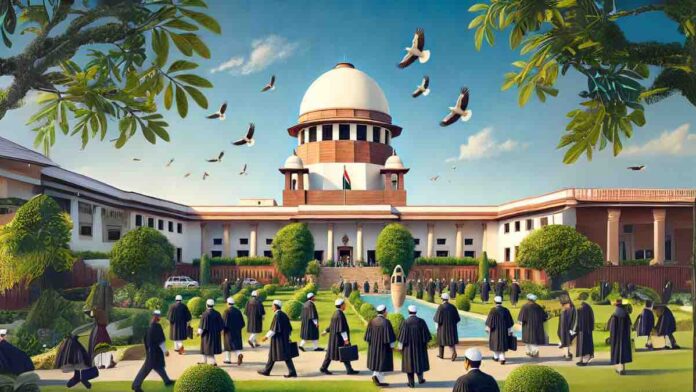The Supreme Court of India, in a judgment delivered on July 24, 2025, has held that the setting aside of a departmental adjudication order on procedural grounds does not automatically render a criminal complaint for the same offence “groundless.” A bench of CJI B.R. Gavai and Justice Augustine George Masih dismissed a criminal appeal filed
To Read More Please Subscribe to VIP Membership for Unlimited Access to All the Articles, Download Available Copies of Judgments/Order, Acess to Central/State Bare Acts, Advertisement Free Content, Access to More than 4000 Legal Drafts( Readymade Editable Formats of Suits, Petitions, Writs, Legal Notices, Divorce Petitions, 138 Notices, Bail Applications etc.) in Hindi and English.




